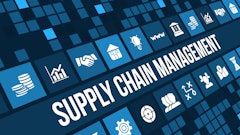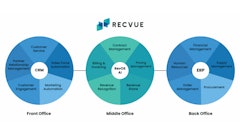
The Coronavirus disease (COVID-19) pandemic has cast a new spotlight on the role of supply chains, which have experienced increasing stress, resulting in such things as the highly publicized toilet paper shortage. It’s an ironic situation that a pandemic has led skyrocketed domestic need whereas industrial needs (offices, hotels, public establishment) have plummeted. The supply chain systems were not resilient enough to manage this quick variability in demand. The old ways of running the supply chain will no longer suffice for today’s environment. Therefore, a new approach is needed.
A study conducted by Oxford Economics found that 39% of respondents had experienced a negative risk event in their supply chains in the past three years. Fortunately, AI and automation technologies are quickly changing the supply chain to become more intelligent, decreasing the likelihood of such incident.
Understanding the intelligent supply chain
The Oxford Economics study found that when asked about their top strategic goals for the overall organization, the majority of those defined as leaders highly ranked “using automation to perform routine tasks,” especially when it came to the supply chain. Leaders were far more focused than others in the survey on using intelligent technologies to create greater efficiencies in their daily operations. They’re also using these technologies to gain real-time data insights, become more customer-centric and sustainable, and improve their resilience.
At the same time, the annual MHI Industry Report found that just 12% of supply chain professionals said their organizations were currently using AI, although 60% expect to be doing so within the next five years.
That’s because the intelligent supply chain is not just about planning, but also about execution and how you can intervene at every level of execution if need be. Sometimes, for instance, you may have all the data you need, you have planned based on that data and are able to execute the plan flawlessly. But, it’s possible to put too much effort on the planning side of things while overlooking the execution to make it resilient enough. And, in that case, what can happen is that if any link in the chain breaks, it creates havoc. This has happened with many organizations as the pandemic has unfolded.
This is where an intelligent process comes in handy; you have to be prescriptive and proactive to ensure that what you have planned is actually happening on the ground. For instance, some organizations have ordering systems that are susceptible to lock-out if an order isn’t finalized within a certain period of time. You might think the order has gone through, but it hasn’t, and that can lead to a stock shortage, customer disappointment and revenue loss. Managing these situatious with close loop autonomous application can help proactively detect these types of errors and fix it before its too late – saving a world of hassle and potential loss.
Why you should use intelligence in the supply chain
Organizations that aren’t using technology to make their supply chain more intelligent are going to fall behind. It’s almost a requirement of doing business these days. According to a McKinsey Global Survey on the adoption of AI, 61% of executives report decreased costs and 53% report increased revenues as a direct result of introducing AI into their supply chains.
AI takes an approach from a reactive to a proactive one. It also helps re-focus employees on higher-value activities as opposed to monotonous and repetitive ones; you don't want to invest your talent on tasks that can be done by a machine. Then supply chain staff will be freed to apply their judgment toward situations when human intelligence is needed to ensure the right decisions are made. This frees workers from boredom and unnecessary stress and frustration.
Benefits of the intelligent supply chain
Implementing an intelligent supply chain brings many benefits, but here are three of the most significant advantage:
· Elevate your brand and competitive positioning. If you are able to manage your supply chain effectively, your cost structure will be lower. If a customer comes in several times and you’re missing the item they want, they probably aren’t going to come in yet again but go elsewhere instead. With intelligent supply chain management, your products will be on the shelf where and when the customer wants to buy them, which protects your revenue.
· Optimization of resources. From the lens of the organization, intelligence is about optimizing the resources deployed to manage the supply chain. And, that includes employees’ morale and productivity.
· Maintain good relationships with vendors. If you are managing supply intelligently, you're not creating undue stress on your vendor network. In today's world, vendor relationships are highly integrated. You can’t simply demand that they adhere to your processes at all times. Growing a happy vendor network is very important, and intelligent supply chain management will help achieve that.
Get smart
The current health crisis revealed just how fragile supply chains can be. Organizations are beginning to incorporate AI and automation into their supply chain management, and research verifies the positive benefits for those that do. AI-based management enables you to intervene at all levels, ensuring that orders go out and the supply lines remain open. Customers get the products they need, supply chain staff and vendors alike enjoy less stress, and your revenue and reputation remain intact.
















![Pros To Know 2026 [color]](https://img.sdcexec.com/mindful/acbm/workspaces/default/uploads/2025/08/prostoknow-2026-color.mduFvhpgMk.png?ar=16%3A9&auto=format%2Ccompress&bg=fff&fill-color=fff&fit=fill&h=135&q=70&w=240)




